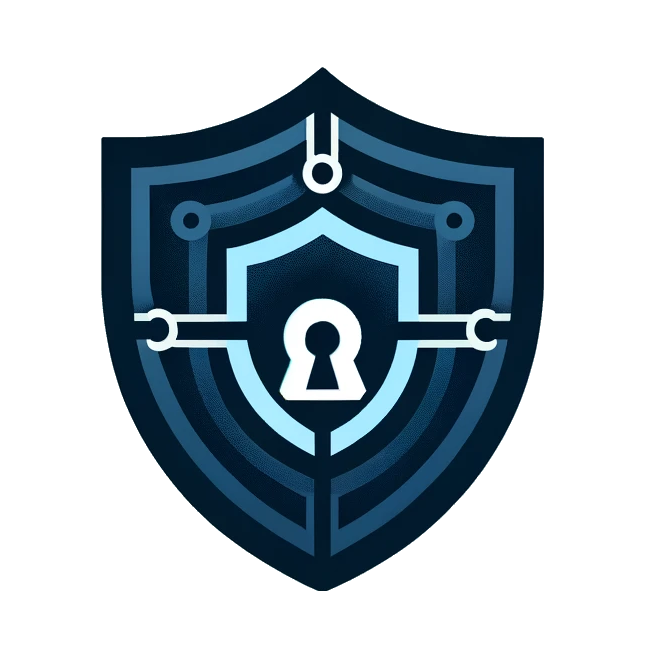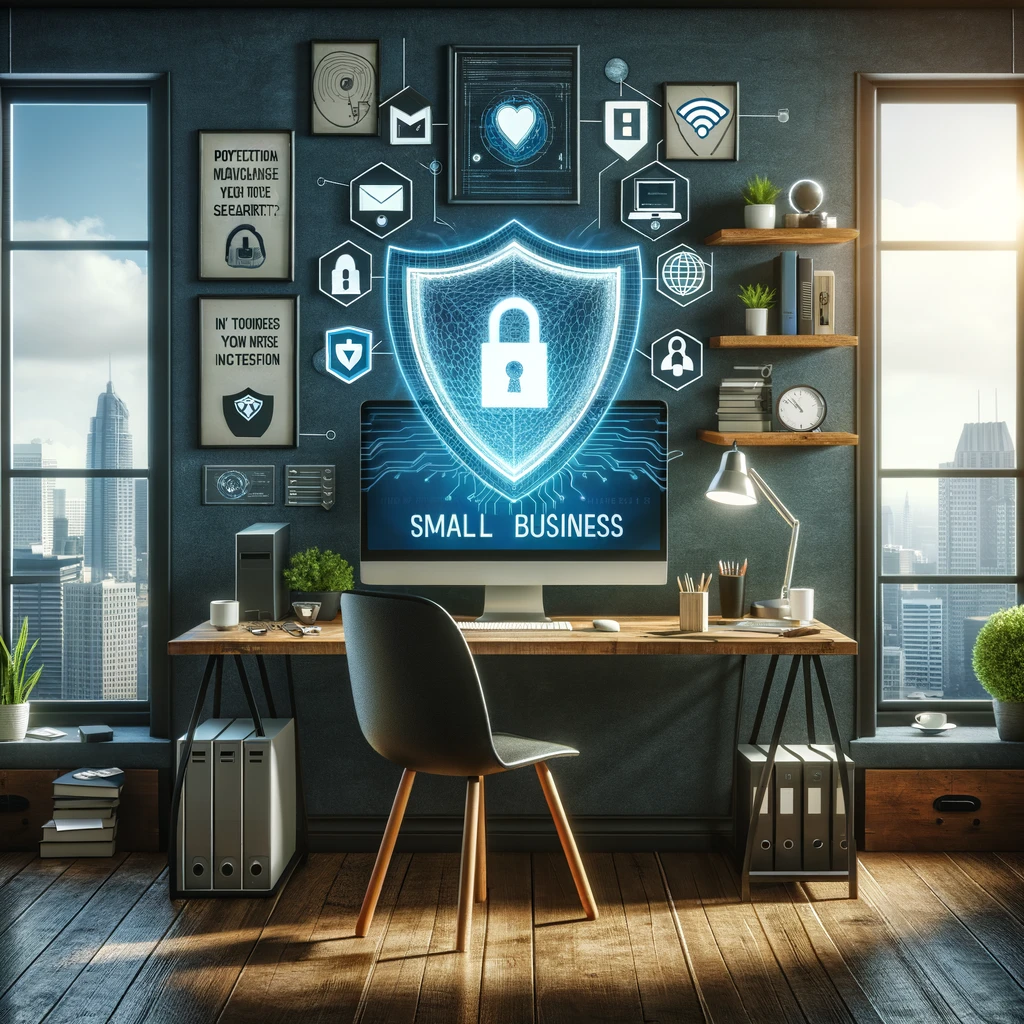Why Sharing Cybersecurity Tips with Friends and Family is Important
Share cybersecurity tips with friends, family, and colleagues to help create a safer digital environment for everyone. Cybersecurity is a shared responsibility, and by spreading awareness, you can make a significant impact in reducing the risk of cyber threats. Many cyberattacks prey on a lack of knowledge, especially among those who may not be as tech-savvy or aware of the latest online dangers.
By taking the time to share practical tips, such as using strong, unique passwords, enabling two-factor authentication, and recognizing phishing attempts, you can empower others to safeguard their personal information and avoid falling victim to scams. Not only does this help protect individuals, but it also strengthens the overall security of the digital world, making it safer for everyone.
The Importance of Cybersecurity Awareness
- Cyberattacks Target the Vulnerable:
- Scammers often focus on individuals who lack knowledge about online risks, such as older adults or young children.
- A Chain is Only as Strong as Its Weakest Link:
- In families or groups sharing devices or networks, one person’s poor security habits can compromise everyone else.
- Building a Culture of Security:
- Educating others creates a ripple effect, fostering better cybersecurity practices within communities.
Benefits of Helping Others Stay Cyber-Safe
- Prevents Financial Loss:
- Teaching others about phishing scams, secure passwords, and safe shopping practices helps them avoid fraud and theft.
- Protects Personal Information:
- Awareness of data privacy ensures sensitive information isn’t shared recklessly online.
- Fosters Digital Confidence:
- Knowledge about online security empowers people to use technology safely and effectively.
- Strengthens Shared Networks:
- When everyone in a household or organization practices good cybersecurity hygiene, it reduces the risk of malware spreading or accounts being compromised.
Key Cybersecurity Tips to Share
Password Security
- Use unique, strong passwords for each account.
- Recommend a password manager to generate and store passwords securely.
- Encourage the use of multi-factor authentication (MFA) for added protection.
Recognizing Scams
- Teach them to identify phishing emails, suspicious links, and fake websites.
- Warn about social engineering tactics, such as impersonation or urgent demands for money.
Safe Online Shopping
- Share tips on verifying website security (e.g., HTTPS, padlock symbol) and avoiding deals that seem too good to be true.
- Recommend using credit cards or secure payment platforms like PayPal instead of debit cards.
Device Security
- Stress the importance of installing updates and patches for devices and software.
- Advise on the use of anti-virus and anti-malware tools.
- Teach them to enable auto-lock and use strong PINs or biometrics for device access.
Social Media Privacy
- Explain the risks of oversharing personal information online.
- Show them how to review and adjust privacy settings on social media platforms.
Protecting Wi-Fi Networks
- Suggest setting a strong, unique password for home Wi-Fi.
- Recommend enabling WPA3 encryption on routers.
Backup and Recovery
- Encourage regular backups of important files to secure locations.
- Discuss using cloud services with encryption or external hard drives.
Safe Downloads
- Teach them to only download software and apps from trusted sources, such as official app stores.
- Explain how to avoid clicking on pop-ups or downloading attachments from unknown senders.
How to Effectively Share Cybersecurity Tips
- Make it Relatable:
- Use real-world examples of scams or breaches they might encounter, such as phishing emails or social media scams.
- Break it Down:
- Avoid technical jargon and focus on simple, actionable steps they can take immediately.
- Leverage Stories:
- Share anecdotes about people falling victim to attacks and how these could have been prevented.
- Use Visual Aids:
- Provide screenshots, infographics, or step-by-step instructions to illustrate points clearly.
- Offer Hands-On Help:
- Guide them in setting up two-factor authentication, updating device settings, or using a password manager.
Tailoring Advice for Specific Audiences
- For Older Adults:
- Focus on scams targeting seniors, such as tech support fraud or phishing emails.
- Teach them how to verify emails or phone calls claiming to be from banks, the IRS, or tech companies.
- For Kids and Teens:
- Emphasize online privacy, avoiding oversharing, and recognizing cyberbullying.
- Teach them to avoid clicking on ads or pop-ups in games or apps.
- For Busy Professionals:
- Share quick tips on securing work devices and recognizing phishing emails.
- Highlight the importance of separating personal and professional accounts.
- For Small Business Owners:
- Stress the importance of securing customer data, using strong passwords, and enabling multi-factor authentication for business accounts.
Tools and Resources to Share
- Password Managers:
- LastPass, Dashlane, or Bitwarden for storing passwords securely.
- Anti-Virus Software:
- Reputable programs like Norton, McAfee, or Malwarebytes for device protection.
- Education Platforms:
- Direct them to free resources like Stay Safe Online (by NCSA) or FTC Cybersecurity Tips.
- Phishing Simulations:
- Encourage participation in phishing awareness quizzes or tools, such as those from Google’s Phishing Quiz.
- Fraud Alerts:
- Recommend signing up for fraud alerts from banks, credit card companies, or credit bureaus.
Real-World Impact of Sharing Cybersecurity Tips
- Preventing Fraud:
- A family member learns to identify phishing emails and avoids sharing their Social Security number with scammers.
- Avoiding Malware:
- A friend stops downloading apps from unverified sources after you explain the risks, protecting their device from spyware.
- Improving Password Practices:
- A relative switches from weak passwords like “123456” to a password manager, securing their accounts.
- Protecting IoT Devices:
- A coworker updates the default password on their smart home system after learning about IoT vulnerabilities.
How to Encourage Long-Term Cybersecurity Awareness
- Lead by Example:
- Practice good cybersecurity habits and share your experiences when implementing them.
- Keep the Conversation Going:
- Regularly update your friends and family about new scams or threats.
- Celebrate Progress:
- Acknowledge when someone implements a tip you shared, reinforcing positive behavior.
- Host Cybersecurity Sessions:
- Organize informal sessions to guide others through setting up secure accounts or recognizing scams.
Benefits of a Cyber-Aware Community
- Reduced Spread of Threats:
- Fewer breaches and scams among people you know reduce the likelihood of attacks spreading to you.
- Stronger Networks:
- Shared home networks or workplace environments become safer when everyone follows good security practices.
- Peace of Mind:
- Knowing your loved ones are equipped to handle online threats reduces your worry.
Conclusion
Share cybersecurity tips with friends, family, and colleagues to help them stay safe in today’s increasingly connected world. Many people may not be fully aware of the latest online threats or best practices for securing their devices, which makes them vulnerable to cyberattacks, data breaches, and scams.
By providing clear, easy-to-understand advice, sharing helpful resources, and offering ongoing support, you empower them to take control of their digital security. Simple actions like using strong passwords, enabling two-factor authentication, and avoiding suspicious links can go a long way in preventing cyber threats. When you share cybersecurity tips, you not only protect the individuals you care about but also contribute to a more secure online environment for everyone, fostering a culture of vigilance and responsibility in the digital space.

Penetra Cybersecurity is at the forefront of defending the digital frontier, providing cutting-edge solutions to protect businesses and organizations from the ever-evolving threats of the cyber world. Established with a mission to create a safer internet for everyone, Penetra leverages a blend of advanced technology, expert knowledge, and proactive strategies to stay ahead of cybercriminals.
Ready to take the next step towards a more secure future? Schedule a consultation with us today and discover how we can help protect what matters most to you. Don’t wait until it’s too late—with Penetra Cybersecurity, your business isn’t just secure; it’s imPenetrable.




